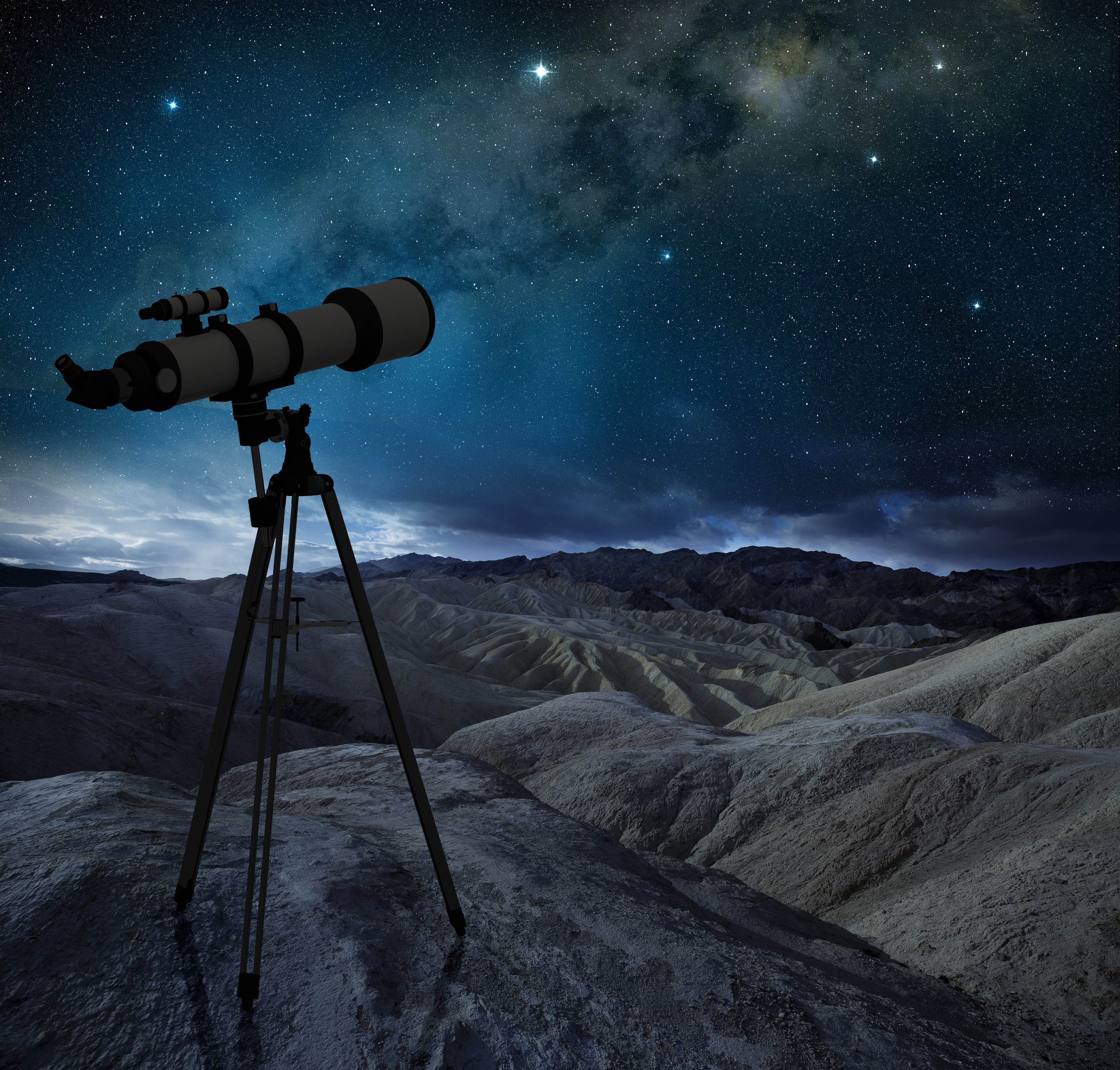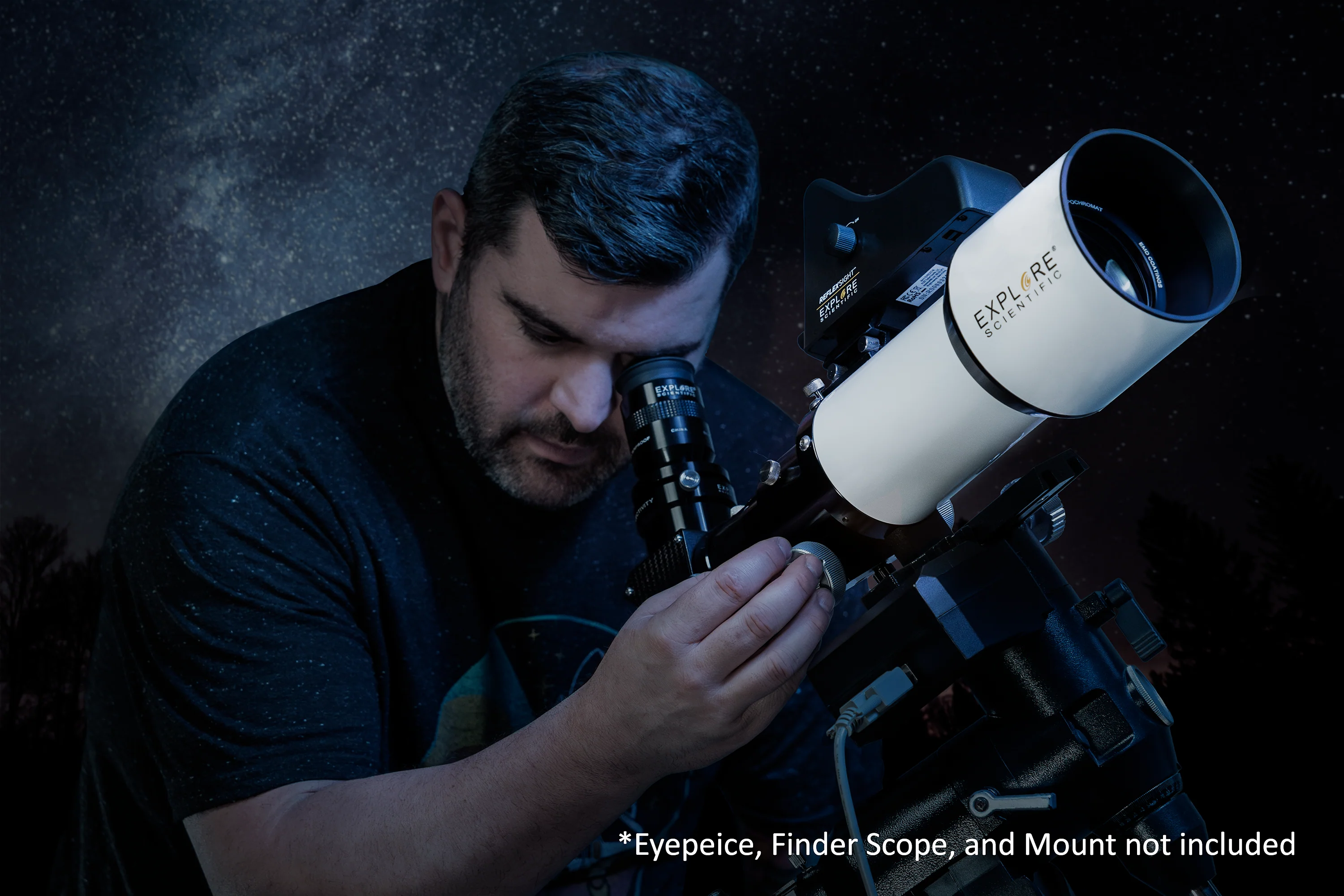Astronomy is one of the most fascinating hobbies, offering a window into the vast and mysterious universe. But for many beginners, the biggest challenge is knowing where to start. With so many different types of telescopes, technical terms, and price ranges, choosing your first telescope can feel overwhelming.
At Elite Telescopes, we aim to make stargazing accessible to everyone. This beginner's guide will help you understand how to choose the best telescope for your needs, budget, and interests—so you can start your journey through the stars with confidence.
Why It’s Important to Choose the Right Telescope
A quality telescope can transform your stargazing experience. It determines how clearly you can see planets, the moon, star clusters, galaxies, and nebulae. Poorly made, low-cost models often lead to frustration due to blurry images or difficult setup. At Elite Telescopes, we specialize in reliable, user-friendly telescopes that deliver clarity, durability, and performance—especially for first-time users.
Understanding the Main Types of Telescopes
There are three primary types of telescopes to consider. Each has its own strengths and ideal use cases.
1. Refractor Telescopes
Refractors use lenses to gather and focus light. They are known for producing crisp images, especially of planets and the moon.
Advantages:
-
Simple to use and maintain
-
Sealed tube keeps out dust and debris
-
Great for planetary and lunar observation
Best For: Beginners looking for easy operation and sharp views of nearby celestial objects
2. Reflector Telescopes
Reflectors use mirrors instead of lenses and are often more affordable per inch of aperture.
Advantages:
-
Excellent light-gathering ability
-
Great for viewing faint deep-sky objects like galaxies and nebulae
-
More aperture for your budget
Best For: Backyard astronomers interested in deep-sky viewing
3. Compound (Catadioptric) Telescopes
These hybrid telescopes combine mirrors and lenses for a more compact design.
Advantages:
-
Versatile and compact
-
Suitable for both planetary and deep-sky viewing
-
Many come with computerized tracking systems
Best For: Beginners who want a high-performance, all-in-one telescope
Key Features to Consider
When shopping for your first telescope on Elite Telescopes, consider these essential specifications and features.
Aperture
Aperture refers to the diameter of the telescope’s main lens or mirror. A larger aperture allows more light to enter the telescope, resulting in brighter and clearer images.
Ideal Beginner Aperture: Between 70mm and 130mm
Focal Length and Magnification
The focal length determines how much a telescope can magnify an image. However, don’t be misled by high magnification numbers alone. Magnification is only useful when paired with proper clarity and image quality.
Mount Type
A telescope’s mount affects how easily you can move and aim it.
-
Altazimuth Mounts: Simple up-and-down, left-and-right movement. Easy for beginners.
-
Equatorial Mounts: Aligns with Earth’s rotation. Ideal for tracking celestial objects.
-
GoTo Mounts: Motorized and computerized, allowing automatic object location and tracking.
Portability
Consider where you’ll be stargazing. If you plan to travel, a lightweight, portable telescope is essential. Tabletop telescopes or compact models are ideal for on-the-go use.
Budget Considerations
You don’t need to spend a fortune to get started with astronomy. Elite Telescopes offers high-quality beginner models starting around $150. As your interest grows, you can upgrade your equipment with additional lenses, filters, or camera attachments. Some telescopes also come in value bundles with everything you need to start observing on day one.
Top Beginner Telescopes Available at Elite Telescopes
Here are a few highly recommended models for new astronomers, all available on our website:
Celestron AstroMaster 70AZ
-
70mm aperture
-
Altazimuth mount
-
Ideal for observing the moon and planets
-
Lightweight and easy to set up
Zhumell Z100 Tabletop Reflector
-
100mm parabolic mirror
-
Compact and portable
-
Great deep-sky viewing on a budget
Sky-Watcher Virtuoso GTi 130P
-
130mm aperture
-
WiFi-enabled GoTo mount
-
Tracks over 10,000 celestial objects
-
Excellent for both beginners and intermediate users
Tips for First-Time Telescope Buyers
-
Know What You Want to See
Are you more interested in planets, the moon, or galaxies? Your target objects should influence your telescope type and aperture choice.
-
Avoid High-Magnification Marketing Gimmicks
High magnification is meaningless without a good aperture and optics. Focus on image clarity instead.
-
Start Simple
Choose a telescope that’s easy to use and doesn’t require complicated assembly or maintenance.
-
Learn the Night Sky First
Use a stargazing app or star chart to get familiar with constellations. It makes using your telescope easier and more rewarding.
-
Buy from Trusted Retailers
At Elite Telescopes, we only stock products from top-rated brands, ensuring you receive long-term value and expert support.
Why Choose Elite Telescopes?
Elite Telescopes is a specialized online retailer focused on making astronomy accessible to all. We offer:
-
A carefully curated selection of beginner and advanced telescopes
-
Detailed product descriptions and buying guides
-
Fast, secure shipping
-
Expert support for all experience levels
We’re passionate about astronomy and dedicated to helping you find the right tools to explore the night sky. Whether you’re buying your first telescope or upgrading to a more advanced model, we’re here to guide you every step of the way.
Conclusion
Choosing your first telescope doesn’t have to be complicated. By understanding the different types of telescopes, key features like aperture and mounts, and considering your specific interests and budget, you’ll be well on your way to enjoying the wonders of the night sky. Whether you’re aiming to observe the craters of the Moon, the rings of Saturn, or distant galaxies, the right telescope can make all the difference in your stargazing experience.
At Elite Telescopes, we’re committed to helping you start your astronomy journey with confidence. We offer high-quality, beginner-friendly telescopes backed by expert guidance and trusted customer service. Explore our handpicked collection today and take the first step toward discovering the universe—one star at a time.
Frequently Asked Questions (FAQs)
1. What is the best telescope for a beginner?
The best beginner telescope balances ease of use, good optics, and affordability. Models like the Celestron AstroMaster 70AZ or Zhumell Z100 offer excellent value and performance for first-time users.
2. What can I see with a beginner telescope?
With a beginner telescope, you can observe the moon in detail, see the rings of Saturn, the moons of Jupiter, and some bright deep-sky objects like the Orion Nebula and star clusters.
3. Do I need a computerized (GoTo) telescope?
Not necessarily. Manual telescopes are excellent for learning the sky, but GoTo telescopes are helpful for those who want automatic tracking and easier object location.
4. Is telescope maintenance difficult?
Refractor telescopes require minimal maintenance. Reflector telescopes may need occasional mirror alignment (collimation), but it’s a simple process once you learn it.
5. Can I use a telescope in the city?
Yes, but light pollution may limit what you can see. Telescopes with higher contrast and filters can help reduce the impact of city lights. For deep-sky objects, darker rural locations offer better viewing conditions.




Share:
Exploring the Night Sky: Must-Know Tips for Using Your Telescope
7 Reasons to Choose Elite Telescopes for Your Stargazing Needs